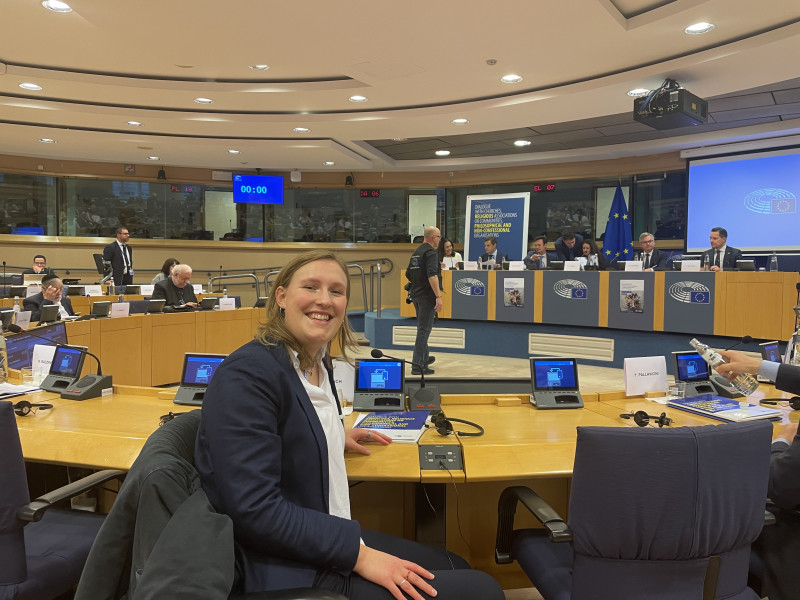
Photo: CEC/Peter Pavlovic
“Fair intergenerational dialogue is a core element in the fabric of our societies,” was the key statement expressed by the Vice-president of the European Parliament Antonella Sberna, who hosted a seminar under the title “The Importance of Intergenerational Dialogue in Addressing Europe’s Future Challenges."
The seminar that took place on 10 December was an opportunity for an exchange between the leading representatives of European institutions: the Parliament, the Commission and the Council, and representatives of churches and religions.
Commissioner Magnus Brunner, the member of the European Commission in charge of a dialogue with communities of faith and conviction underlined that: “to foster bridges between generations, create opportunities for young people to become active parts of society and to become active citizens belongs to the main strategic aims of European institutions for just starting legislative period.”
The Conference of European Churches (CEC) contributed to the discussion through a message about how young people must be treated as equal partners in order to effectively address the world’s grave challenges.
Henriette Greulich, chairperson of the World Student Christian Federation for Europe, delivered the message on behalf of CEC emphasizing that intergenerational dialogue is about mutual learning.
“It’s not a one-way street where older generations pass down lessons to younger ones, nor is it the other way around,” she said. “This dialogue allows us to understand each other's perspectives, values, behaviors, and societal frameworks.”
Naming climate change, defending democracy, countering extremism, and safeguarding freedoms, among other challenges in the world, Greulich underscored treating young people as equal partners.
“Equal participation means more than consulting young people occasionally or inviting them to observe decision-making,” she said. “It means involving them in these processes as contributors whose voices actively shape the solutions.”
Greulich further noted that the principle of collaboration is vital for European institutions, philosophical organizations, and faith communities alike. “Faith communities, as inherently intergenerational spaces, can model inclusion by involving youth in governance and decision-making,” she said. “Older generations, though they may have different perspectives, can be valuable allies, offering resources, networks, and institutional knowledge to support youth-led initiatives through mentorship or logistical aid.”
We must also move beyond tokenism, Greulich urged. “Who holds decision-making authority? Whose voices are excluded? Who is not in the room? These questions are critical for understanding and dismantling the barriers that prevent meaningful collaboration.”
She concluded by asking for a commitment for genuine collaboration. “Let us commit to not just talking about youth, but working with them, on eye-to-eye level, to shape a future that is inclusive, just, and resilient,” she said.
The seminar featured leading representatives of the European institutions including President of the European Parliament Roberta Metsola, representatives of the Hungarian Presidency in the European Council and members of the European Parliament, as their counterparts representatives of CEC, Orthodox Churches to the European Union, European Bishop’s Conferences, the Conference of European Rabbis, European Muslim Leaders, European Buddhist Union, and others.